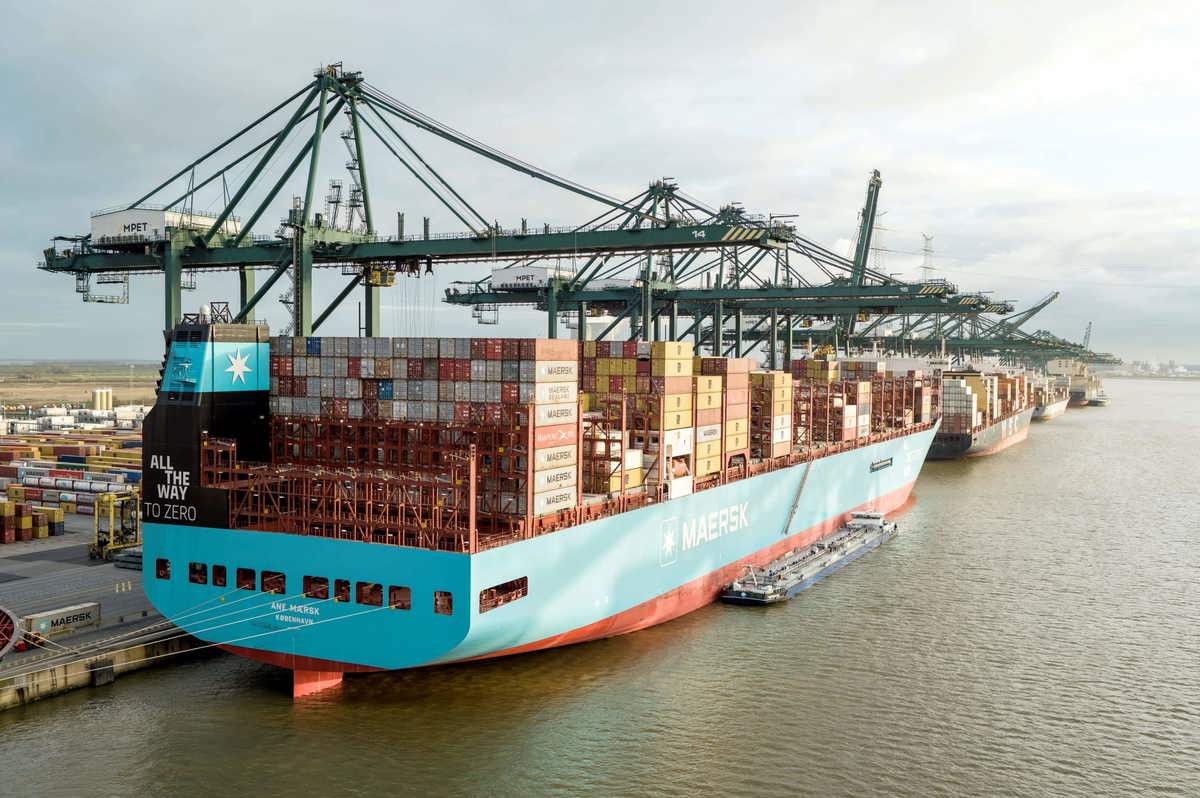Maersk’s alleged LNG investment an ‘obvious detour’ from climate goals – Say No to LNG
Danish shipping major A.P. Moller-Maersk needs to honour its past commitments and immediately halt all investments in LNG, urged global shipping campaigner Say No to LNG.
 PHOTO: Bunkering of A.P. Moller-Maersk's methanol-fuelled containership, Ane Maersk. Port Authority of Antwerp-Bruges
PHOTO: Bunkering of A.P. Moller-Maersk's methanol-fuelled containership, Ane Maersk. Port Authority of Antwerp-Bruges
Say No to LNG is a global collaboration of climate advocates, which includes transportation-focused non-profits such as Transport & Environment, Opportunity Green, and Clean Arctic Alliance, among others.
“The Say No to LNG global shipping campaign is deeply concerned by Maersk’s recent decision to invest in Liquified Natural Gas (LNG)-powered vessels. This move directly contradicts Maersk’s previous commitments to prioritize zero-emission fuels,” the campaign wrote in its statement to Maersk.
Some media reports suggest that Maersk is expected to announce an order of at least 12 LNG-fuelled ships as part of its recent strategy to “hedge” its investments in methanol.
“So Maersk’s move into LNG fuel may seem awkward but is ultimately about costs and economics,” reported media outlet Lloyd’s List, citing one source.
Addressing these reports, Say No to LNG has criticised that Maersk’s potential investment in LNG-fuelled ships would be an “obvious detour” from the company’s initial stance on LNG.
“We don’t believe that LNG will play a significant role for us as a transition fuel because it is still a fossil fuel, and we would rather transition directly from our current practices to neutral fuel types,” former Maersk chief executive, Søren Skou, stated during the company’s investor presentation in 2020.
The Danish shipping company also mentioned in its 2020 Sustainability Report that it will not use transitional marine fuels such as LNG but instead "leapfrog" to net zero fuels. This decision was backed by its internal research, which placed methanol and ammonia as the top priorities in the future marine fuel mix.
Say No to LNG further argues that Maersk’s reported investment overlooks “the larger, catastrophic climate impact of LNG” and creates a “false sense of progress” for shipping’s green transition.
In addition, Maersk had urged the members of the European Parliament (MEPs) to set a deadline for ending the construction of new ships powered by only conventional marine fuels, advocating instead for a shift towards low- and zero-emission alternatives. Say No to LNG contends that Maersk’s investment in LNG undermines efforts to move away from fossil fuels, considering that LNG itself includes fossil components.
LNG (2.750 mtCO2/mt of fuel) has a lower carbon factor than RMG 380 fuel oils (3.114 mtCO2/mt) and MGO (3.206 mtCO2/mt), according to emission factors used in EU MRV regulation. But it has higher well-to-wake emissions than conventional marine fuels, partly because of its higher upstream methane emissions from leakages during extraction, processing and transport.
The fuel has gained popularity because of its widespread availability and technological readiness, unlike zero-emission potential fuels like methanol and ammonia. According to DNV data, there are currently 559 LNG-capable vessels in operation and another 499 on order for delivery towards 2028.
“Maersk’s actions highlight the need for greater industry accountability and a renewed focus on achieving a truly sustainable future that leaves no one behind,” the statement concludes.
By Konica Bhatt
Please get in touch with comments or additional info to news@engine.online






